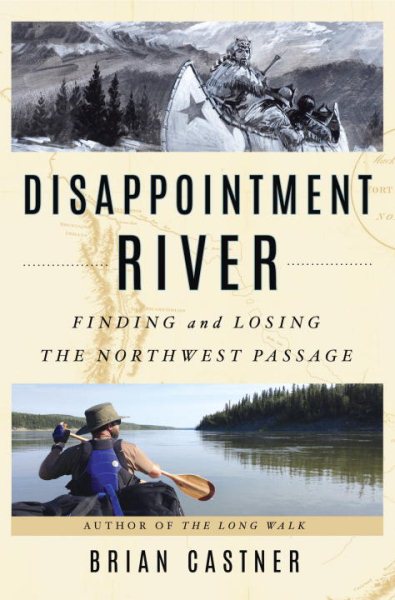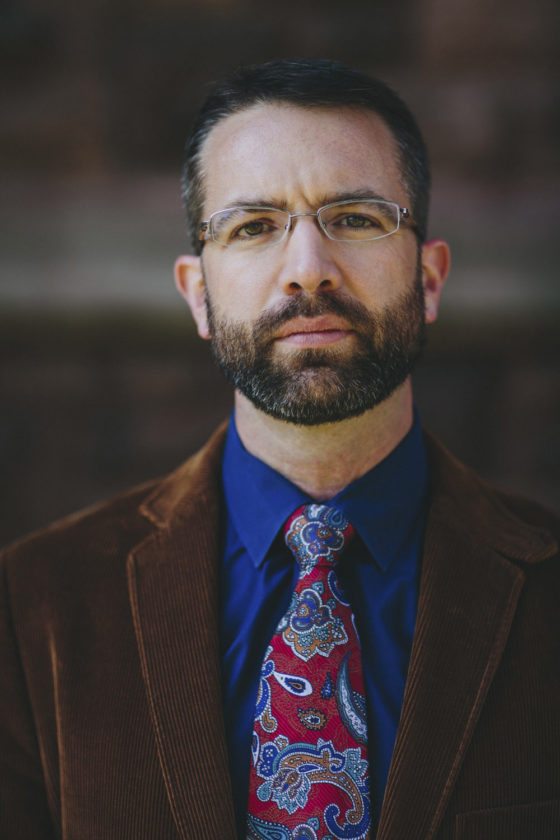Interview by Jana Hoops. Special to the Clarion-Ledger Sunday print edition (April 15)
For a man who never intended to be a writer and admits that he “stumbled into it,” Brian Castner’s work has landed on solid footing thus far.
 His newest book, Disappointment River: Finding and Losing the Northwest Passage, follows his own bold journey to retrace a 1789 expedition whose leader had hoped would finally unlock a North American passage to Asia–and change world trade forever.
His newest book, Disappointment River: Finding and Losing the Northwest Passage, follows his own bold journey to retrace a 1789 expedition whose leader had hoped would finally unlock a North American passage to Asia–and change world trade forever.
Castner’s original goal of becoming an engineer got sidetracked years ago, and after a successful Air Force career that found him detonating bombs on a regular basis, the Iraq War veteran returned home to find that writing would become his tool to work through lingering stress from his military years.
His previous books include the memoir The Long Walk in 2012 (a New York Times Editor’s Pick that was adapted into an opera); and the nonfiction All the Ways We Kill and Die in 2016. His journalism and essays have appeared in Esquire, Wired, VICE, the New York Times, the Washington Post, The Atlantic, and others.
How did your engineering background lead you, in a roundabout way, into your writing career?

Brian Castner
I grew up in Buffalo, New York, went to Marquette University in Milwaukee, and majored in electrical engineering. I was never a good engineer, though. I got good grades, but I didn’t enjoy it. I didn’t think like other engineers. But the engineering degree was a means to an end, because I had an ROTC scholarship, and wanted to get into the Air Force to be an astronaut. I’ve always wanted to explore–the further out, the better! Obviously, that didn’t work out, but writing has let me travel the world.
I’ve always liked to read, and as a kid I wrote a lot, in middle school and high school. Even in college, I tried to escape engineering a bit, and studied a semester in Oxford, reading philosophy, history, and English. I even took a playwriting class. But I never considered a career in writing. I didn’t think it was a job that contemporary adults really did. I didn’t know any authors until I became one. I stumbled into it.
You served three tours of duty in the Middle East, working as an Explosive Ordnance Disposal officer (a bomb squad tech) in the Air Force and winning a Bronze Star. When you returned home, you spent a good while readjusting to civilian life, and fed your adventurous side by working as a river guide. When you decided to retrace Alexander Mackenzie’s 1,100-mile exploration in 1789 of a river he hoped would finally uncover the “Northwest Passage” in northern Canada, how did your family (your wife and four sons) react, and why was it so important to you to make this dangerous journey?
I did struggle returning home, a story I tell in The Long Walk. River guiding really helped me find peace in the tumult–when you are in the middle of the rapid, you have to be totally present, to think about nothing but your line–that is, your safest path through the water–and the water itself. I have a calm feeling in the whitewater and it gave me a safe way to chill out and readjust to home life.
For this trip, I don’t have a good answer to what drove me. I find it to be an urge, a base instinct. I had always wanted to take a long journey like this, walking or canoeing, months in the wilderness. When I came upon Mackenzie’s story, I was entranced by the narrative, but also by the possibility of taking the journey myself, to write a better book. It fulfilled a long-held desire, and that it was Mackenzie’s journey I was retracing is a matter of scholarly research and serendipity.
A few of my four sons wanted to come with me; my wife put the kibosh on that. I also invited her along, for at least a section, but she smartly demurred. They know me, know why this trip excited me. And the good news is that as I get older, the fernweh [wanderlust] seems to be fading. At least a bit.
Disappointment River alternates between the detailed stories of your journey and that of Alexander Mackenzie, a fur trader who knew that his success in finding a Northwest Passage–a trade route through North America that would provide a direct channel to the East–would not only secure his place in history, but would ensure his fortune as well. Why did you decide to tell both stories?
Because these are the kinds of stories I most like to read, a blending of forgotten history and travelogue. But also, one story didn’t make sense without the other. On the one hand, I’ve had enough internal voyages of discovery. I didn’t need to take a long canoe trip to find myself. I needed an external goal and finish line, and retracing Mackenzie’s path provided that. At the same time, if I just told Mackenzie’s story, I think most readers would have an obvious question: I wonder what this land is like now? That Mackenzie encountered fierce pack ice at the end of his journey, and I suspected I would find open ocean, lent another bit of symmetry to the trip.
On your own journey, you worked out a plan that allowed four of your friends to jump in and accompany you, one at a time, via small airports along the way. Their travel schedules dictated that you were allowed little time to rest along the way. Tell me how having these friends join you–and the schedule you were forced to keep–influenced your trip.
As I write in the book, I had no interest in doing a psychological experiment on myself, to see if I could do the trip by myself; it was always about finding the right people to go with me. At first, I hoped to get one friend to do the whole trip, but no one had the time. Doing four friends, and rotating the flights, was a matter of necessity. I think it had benefits in the book, though–a variety of characters for the reader to get to know.
The tight schedule did produce some anxiety, but…pretty early on in the trip, you realize how small and powerless you are against the might of the river. So, I worried before the trip, but during it, you simply make the best time you can and realize how much is out of your control. The cold, wet, heat, thunderstorms, bugs, and hunger drove us as much as a schedule. I wanted to finish the trip, succeed, and get home to my kids.
In the book, you speak often of the difficulties you faced–several serious run-ins with storms and high winds, high waves, and, at times, even hunger. You often mentioned the stress, exertion, filth, heat, and mosquitoes–and how it took a toll on your mind and body. Did you expect it to be this difficult? Of what were you most fearful? What did you miss the most?
I expected it to be physically taxing, and I knew how to patiently endure the weather and hunger. But I wasn’t good at predicting how mentally challenging the monotony was. I didn’t know I would be so bored, for such long stretches–the view never changing, the sun never changing, the food never changing, nothing more to talk about, just paddling through a constant now. That tedium was the biggest challenge.
My biggest fear was not bears or weather or waves, honestly. It was getting injured or sick. I had a big med kit with a lot of drugs, like cipro, but fortunately, I never needed it.
I missed a lot of things on the river, especially my kids. But all the modern conveniences, the thing I missed most was darkness. The ability to draw the blinds and make a dark bedroom. It felt so good to sleep in darkness.
As you traveled north, you were able to get a sense of the cultures and lives of the people in these tiny villages. What did you discover about their hopes and fears?
I had read a lot on the struggles in northern indigenous Canada: poverty, alcoholism, suicide. But I was unprepared for the reality of it, the casual public intoxication at all hours, the pervasive want. Of course, I met wonderful generous people, who took me into their homes and told me stories of living on the land in the traditional way. But they talked about the alcohol and poverty, too, all the time. I didn’t have to bring it up–there is no way to avoid it. There is just a pervasive hopelessness–the traditional ways are hard. Please rid yourself of any romance now–living off the land is hard and dangerous work, a hard life. No wonder the young people are not clamoring to take it up, not when they know all about modern life on satellite TV. But what replaces it, in these tiny villages in the North? The pipeline? Tourism? There is not much answer now.
For reasons I’ll let readers discover, Mackenzie believed for the rest of his life that his voyage to find the Northwest Passage was a “spectacular failure”–but he could never know the truth. His book about it became a worldwide bestseller, and he received much affirmation. What do you think his greatest achievement was?
I think his greatest…achievement is that he never lost a man or woman on his expeditions. This was hardly an assured thing. Voyagers died in the rapids all the time. Attack by the indigenous tribes was a real threat–the next expedition to follow Mackenzie down his river, in 1799, was ambushed and wiped out. John Franklin followed Mackenzie’s route in 1819, and his party resorted to cannibalism. Despite the hazards of the whitewater, violence, and starvation, not a single person died on his great journeys in 1789 and 1793. In retrospect, that is remarkable.
What did this experience help you learn about yourself? Would you do it again?
After this trip, I feel like I have nothing left to prove. Even to myself. Maybe especially to myself. That might sound funny, since I have survived other crucibles that are supposed to impart that feeling–in EOD school, 30 of us started and only three finished. But I had never taken a long wilderness journey like this before. And I feel like I’m good now–if I never hike the Appalachian Trail, I’m fine.
I wouldn’t do a trip like this again, not without my wife and some of my children. There is nothing hiding behind the next spruce tree that is more important than them.
Do you have another book or idea in thew works at this time?
I have started my next book, and it will be published again by Doubleday. But I hesitate to say too much, lest the ideas and inspiration slip away into the ether. I can say this, though: it is nonfiction, history, a story of the North, and I do have to take a backpacking trip into the mountains. Yes, my sons go, too!
Disappointment River is a 2018 selection for our First Editions Club for Nonfiction.


Comments are closed.